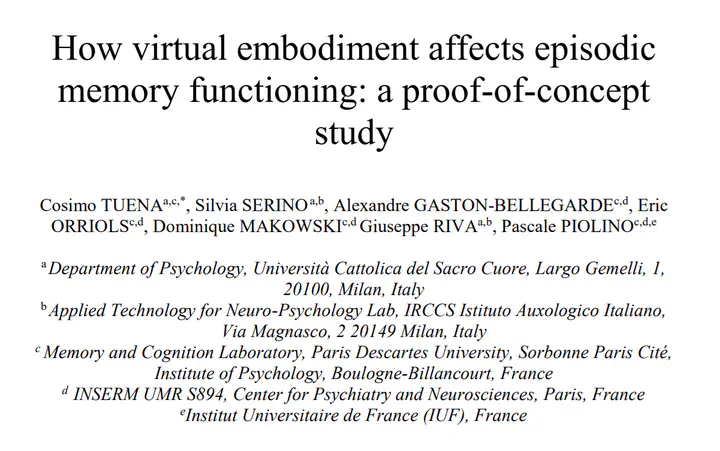
Abstract
Recent theories in the field of embodied cognition have pointed out the role of the body for episodic memory, i.e., the memory for personally experienced events. Although virtual embodiment has been used traditionally to investigate the different components of bodily self, it provides great advantages to manipulate the whole embodied experience. In the current study, we manipulated three different levels of virtual embodiment (“full embodiment”, “medium embodiment”, and “low embodiment”). All participants were asked to navigate in three different virtual cities and memorize all the events that they encountered within each environment. We evaluated the effect of different level of embodiment on the main feature of the recall and recognition (i.e., what events have occurred) and sense of presence. Data emerge with interesting consequences on embodied cognition hypothesis. Accordingly, findings are discussed giving an innovative view of virtual reality as an embodied tool able to influence cognitive processes such as episodic memory.